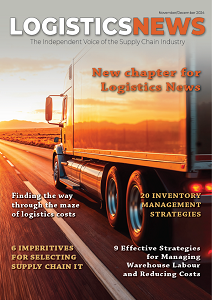Gerhard Stander, Director: Retail and Agriculture, CHEP Sub-Saharan Africa, shares some of the exciting trends shaping agriculture supply chains
The global pandemic has brought renewed focus on one of the most fundamental components of the global economy: food supply chains. While delivery times for some manufactured goods have come under pressure during lockdowns, there is no such latitude for agricultural produce.
Earth’s seven billion people require feeding – promptly, constantly and efficiently – which is why the supply chains for agricultural products and fresh produce are a space of constant innovation. The complex systems that feed the world also reflect many of the same trends shaping our society today. These are some of the trends emerging in the agricultural space:
Digital twinning
Agriculture supply chains are complicated. This means that a change in any variable – such as climate or input prices – has far-reaching consequences. Fortunately, modern AI and machine-learning capabilities now allow companies to model the effect of these changes.
Digital twinning allows producers to create value by applying digital and analytics technologies to new business models and product offerings before launching them in the physical world. Using the data they capture, agriculture players can build digital twins of their physical supply chains, virtual replicas that allow them to run simulations and find the most efficient ways of moving crops through the system.
Thanks to the Internet of things (IoT), the agriculture industry is generating more data than ever, on everything from agronomy to the weather, to logistics, to market price volatility.
Sustainability
It has become almost non-negotiable that supply chains be built on sustainable principles. CHEP has been
sustainably providing the platforms for agricultural supply chains for decades, through its share-and reuse system of pallet, crate and bin pooling. The next frontier for sustainability is to build regenerative
supply chains – systems that put back more into the environment than what is taken out.
CHEP is doing this through initiatives such as vertical integration strategies, whereby two trees are planted for every tree used in the manufacture and repair of its pallets.
Customised platforms
Increasingly, resourceful logistics firms are producing platforms that can accommodate and protect delicate produce – apples, bananas or peaches, for example – which require reusable plastic containers (RPCs) that are robust, but also flexible, lightweight and well ventilated.
For the highest produce grades, sensors may also be installed to measure and report on the temperature, humidity and integrity of the produce throughout its journey from farm to fork.
Partnerships and outsourcing
Producers are coming to accept that platform logistics is a specialist competence and that there are real efficiency and sustainability benefits to be gained from engaging organisations with the right equipment for their needs, and the business model to manage it efficiently.
The trend is increasing for growers, farmers and Agriprocessors alike to engage with specialist platform suppliers for their logistics needs, so that they can focus on their own area of expertise – producing the food that feeds the world. •



